 Lactation & Breastfeeding Online Course(s) & Continuing Education
Lactation & Breastfeeding Online Course(s) & Continuing Education
Access the latest clinical skills and research for Lactation & Breastfeeding for professional training. These Lactation & Breastfeeding online courses provide practice-changing skills and valuable perspectives from leading global experts. This Lactation & Breastfeeding education has been accredited for a variety of CEUs / CERPs and can be accessed on-demand, at your own pace.

Urban Design Solutions to Support Breastfeeding in Public

Professor Lisa Amir is a general practitioner and has been an International Board Certified Lactation Consultant since 1989. She is the author of over 120 peer-reviewed articles on breastfeeding. She works in breastfeeding medicine at The Royal Women’s Hospital in Melbourne, Australia. She is a Principal Research Fellow at Judith Lumley Centre, La Trobe University and is the Editor-in-Chief of the open access journal, International Breastfeeding Journal.
Topic: Ethical Issues in the Use of Medications During Lactation - [View Abstract]
Topic: Taking a Lactation History: From Pregnancy to Postpartum and Beyond - [View Abstract]
Topic: Urban Design Solutions to Support Breastfeeding in Public - [View Abstract]
Some mothers find it challenging to breastfeed outside the home, and this may contribute to cessation of breastfeeding earlier than planned. To date, breastfeeding women have not been included in most public space designs, such as parks, shopping centres or public buildings. I worked with experts in planning and urban design to explore design features that invite or deter breastfeeding in public. We conducted interviews and focus groups with breastfeeding mothers in three local government areas in Victoria, Australia. We received input from over 80 mothers speaking five languages, as well as health professionals and council planning staff. Many participants reported avoiding breastfeeding in public spaces due to social expectations or physical comfort. Mothers reported that best spaces for breastfeeding were dignified, safe, comfortable, accessible, compatible with their other needs and responsibilities with a high level of amenity. Using these data, we developed design guidelines that outline how a range of everyday shared spaces could become breastfeeding-friendly as well as the optimal design characteristics for dedicated breastfeeding spaces.


Catherine Watson Genna BS, IBCLC is an International Board Certified Lactation Consultant in private practice in New York City. Certified in 1992, Catherine is particularly interested in helping moms and babies breastfeed when they have medical challenges and is an active clinical mentor. She speaks to healthcare professionals around the world on assisting breastfeeding babies with anatomical, genetic or neurological problems. Her presentations and her writing are enriched by her clinical photographs and videos. Catherine collaborates with Columbia University and Tel Aviv University Departments of Biomedical Engineering on research projects investigating the biomechanics of the lactating nipple and various aspects of sucking and swallowing in breastfeeding infants. She is the author of Selecting and Using Breastfeeding Tools: Improving Care and Outcomes (Praeclarus Press 2009) and Supporting Sucking Skills in Breastfeeding Infants (Jones and Bartlett Learning 2008, 2013, 2017) as well as professional journal articles and chapters in the Core Curriculum for Lactation Consultant Practice and Breastfeeding and Human Lactation. Catherine served as Associate Editor of the United States Lactation Consultant Association’s official journal Clinical Lactation for its first seven years.
Topic: Breastfeeding Strategies for Tongue-tied Infants - [View Abstract]
Topic: Critical Assessment of Apparent Tongue-Tie - [View Abstract]
Topic: Introduction to Cervical Auscultation - [View Abstract]
Topic: Lactation Support for Infant Biomedical Challenges - [View Abstract]
Topic: Organization of tongue movements before and after frenotomy for posterior tongue-tie: an Ultrasound analysis - [View Abstract]
Topic: Positioning and Latch for Breastfeeding - [View Abstract]
Topic: Ultrasound Analysis of Sucking: Tongue-Tie and Confounders - [View Abstract]
Topic: Using Breastfeeding Supplementers - [View Abstract]
This presentation reviews available commercial and clinician-assembled supplementer devices and their use during breastfeeding in a problem solving context. It includes special considerations for infants with oral clefts and cardiorespiratory conditions.

Using Gravity-Assisted Positions to Prevent Early Breastfeeding Problems

Nancy Mohrbacher was born and raised in the Chicago area, where she lives today. She is a board-certified lactation consultant who has been helping nursing mothers since 1982. Her breastfeeding books for parents and professionals include Breastfeeding Answers Made Simple and its Pocket Guide; Breastfeeding Made Simple(with Kathleen Kendall-Tackett); Working and Breastfeeding Made Simple; and Breastfeeding Solutions and its companion app for Android and iPhone.
Nancy currently contracts with hospitals to improve breastfeeding practices, writes for many publications, and speaks at events around the world. Nancy was in the first group of 16 to be honored for her lifetime contributions to breastfeeding with the designation FILCA, Fellow of the International Lactation Consultant Association.
Topic: Applying Bioethics to Milk Banking and Milk Sharing - [View Abstract]
Topic: Concerns About Low Milk Production - [View Abstract]
Topic: Transitioning the Preterm Infant to the Breast - [View Abstract]
Topic: Using Gravity-Assisted Positions to Prevent Early Breastfeeding Problems - [View Abstract]
Topic: What Mothers Need to Exclusively Breastfeed - [View Abstract]
Topic: What's New In Lactation - [View Abstract]
View Details / Enroll

Utilizing Connected Health Technology and Telehealth to Improve Perinatal Access and Quality in Rural Areas

Sarah J. Rhoads, PhD, DNP is a telehealth researcher and educator, emphasizing the human impact of technologies on health care provider roles and patients. Dr. Rhoads is a Professor at the University of Tennessee Health Science Center. She has been the primary investigator on multiple grants related to telehealth and is a Co-Investigator with the South Central Telehealth Resource Center, which facilitates telemedicine in Arkansas, Mississippi and Tennessee. Several of Dr. Rhoads’ research and project grants have focused on the Mississippi River Delta region of the United States. Dr. Rhoads has a passion for improving maternal, neonatal, and pediatric care in rural areas.
Despite the best efforts of the health care community, many rural women during pregnancy do not have access to obstetrical health care providers or a hospital that delivers near their home. This decreased access to services may lead to poor pregnancy and neonatal outcomes and when a woman has a high-risk pregnancy, access to care becomes a critical issue. Due to this disparity in access to care and maternal/infant outcomes, it is essential that health care providers and communities examine different ways to improve access. Connected health and telehealth technology is an innovative way to reduce access to care issues and assist women in having a healthier pregnancy, ideally improving maternal and neonatal outcomes.

View Details / Enroll

View Details / Enroll

Vestibular Processing: Using the Sixth Sense to Support Lactation and Parent/Infant Relationships

Gretchen Becker Crabb is an Occupational Therapist, Licensed Professional Counselor, and Endorsed Infant Mental Health Therapist. She is also a Certified Lactation Counselor, La Leche League Leader, and Brazleton Newborn Observation (NBO) trainer.
Gretchen’s passion is rooted in fostering lifelong relationships and connection through co-regulation in pregnancy and beyond. Her unique approach to lactation support and therapy is rooted in culturally attuned sensory, somatic, and trauma-informed mental health techniques.
Gretchen owns and operates a private practice in Madison, Wisconsin. For 21 years, she has provided developmental, trauma, feeding, and attachment support for tiny humans and their caregivers in birth to three, preschool, private practice, and peer group settings. Gretchen is an international speaker, reflective supervisor, and infant mental health consultant. In these roles, she offers compassionate, experiential, and reflective holding spaces for professionals. She is a proud United States Air Force spouse and mother of three boys.
Topic: Infant Mental Health: What Does It Look Like in Practice? - [View Abstract]
Topic: Scent-Sational Connections: The Role of Olfaction in Development - [View Abstract]
Topic: Sensory Processing and Breast/Bodyfeeding: Using Co-Regulation to Support the Feeding Relationship - [View Abstract]
Topic: Vestibular Processing: Using the Sixth Sense to Support Lactation and Parent/Infant Relationships - [View Abstract]
The body’s ability to process sensory information provides the basis of all function. Interestingly, our most foundational sense of movement is often overlooked as a component of lactation support. In this presentation, we will tie together research in neurology, primitive reflexes, mental health, and sensory integration to demonstrate the significant impact vestibular function has on the quality of lactation and infant/caregiver relationships. Participants will enhance their observational skills and explore ways to provide support for body/breastfeeding dyads using a vestibular processing perspective. Experiential activities will offer participants the opportunity to play with movement and reflect on personal experiences to enhance self-awareness and compassionate care.

View Details / Enroll
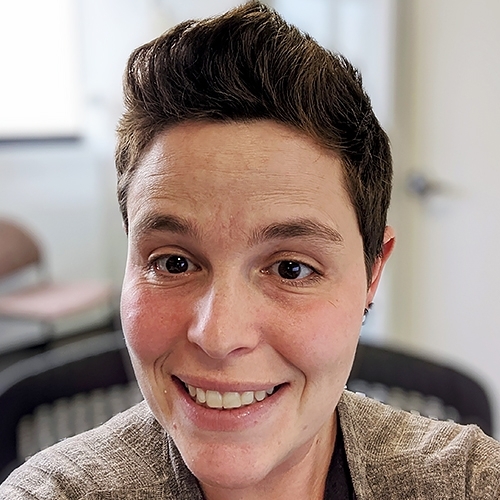
Virus Killing by White Blood Cells in Breast Milk: How Breastfeeding Is Protective Against HIV

Rebecca LR Powell, PhD, CLC is an Assistant Professor in the department of Medicine, Division of Infectious Diseases, at the Icahn School of Medicine at Mount Sinai Hospital. Currently Dr. Powell is analyzing the phagocytosis responses of various cell types to better understand the effects of phagocytosis receptor profiles and the impact of antibody specificity on the elicitation of biologic function. Additionally, Dr. Powell is studying the contribution of breast milk leukocytes to the relatively low rate of HIV transmission in infants exclusively breastfed by their HIV-infected mothers. She received her PhD in Microbiology from the Sackler Institute, New York University School of Medicine, and her CLC from the Healthy Children Project.
Unless access to clean water and appropriate infant formula is reliable, the World Health Organization does not recommend HIV-infected mothers stop breastfeeding. Remarkably, only about 15% of babies exclusively breastfed by their HIV-infected mothers become infected with HIV. This suggests that although breast milk is a vehicle for HIV transmission, the milk itself exhibits a strong protective effect against infection. Breastfed babies ingest 100,000 - 100,000,000 maternal cells every day via breast milk; what remains largely unclear is the contribution of these cells to the milk’s anti-viral qualities. A large study has been undertaken to isolate cells from human milk in order to measure the ability of these cells to engulf and destroy HIV by a mechanism known as phagocytosis. Over 50 samples of breast milk obtained from healthy women have been analyzed. Phagocytosis of HIV was detected in all samples. Activity did not appear to correlate with stage of lactation. Various cell types known for phagocytic capacity were identified and measured, including granulocytes, monocytes, macrophages, and dendritic cells. All samples exhibited strong granulocyte activity.These data further demonstrate that phagocytosis of HIV by immune cells from breast milk can be measured. This information will be critical for design of therapeutic vaccines capable of reducing the likelihood of mother-to-child transmission of HIV in areas where breastfeeding is essential.

View Details / Enroll
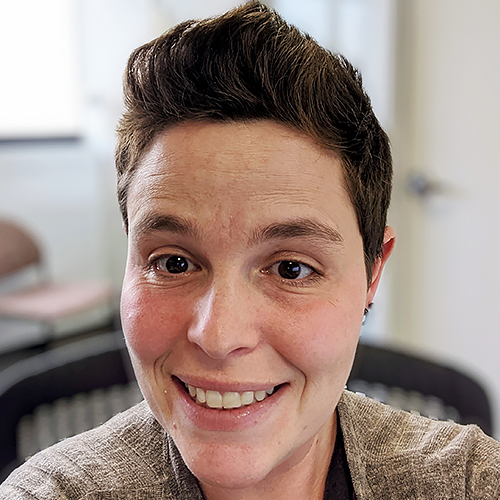
View Details / Enroll
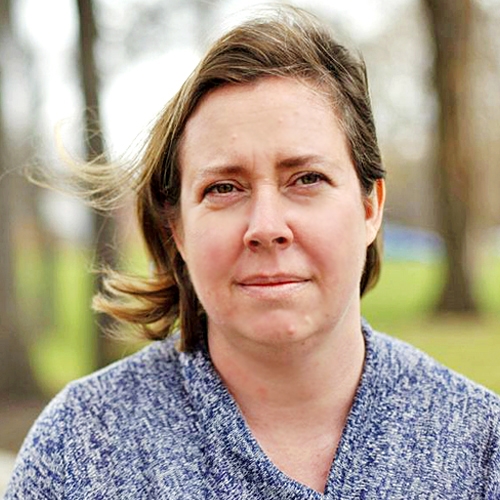
Watching Our Words: Is Risk-Based Language Always the Right Choice?

Michelle Pensa Branco MPH IBCLC is a lactation consultant and public health advocate. In addition to her clinical practice, which has included in-hospital, outpatient and private practice settings, she advocates for improved maternal-child health practices at the local, national and global level. She has a particular interest in the impact of trauma to breastfeeding families, models of peer support to improve breastfeeding outcomes and the application of health communication principles to the promotion and protection of breastfeeding. Michelle serves as the Director of Peer Support Programs and provides clinical lactation expertise for Nurture Project International, the only international NGO focused exclusively on infant feeding in emergencies. With Jodine Chase, she co-founded a Canadian non-profit organization, SafelyFed Canada. She is also an active member of the Ontario Public Health Association’s Breastfeeding Promotion Working Group. Michelle has previously served as the Vice-Chair of La Leche League Canada, the Communications Director for the Canadian Lactation Consultants Association as well as the Toronto Coordinator of INFACT Canada. When she is not travelling for work, Michelle stays close to home, living with her family just outside Toronto, Ontario, Canada.
Topic: Keeping the Fox Out of the Chicken Coop: Safeguarding Your Reputation Against Baby Feeding Industry Influence - [View Abstract]
Topic: Playing Well with Others: Collaborating in High Conflict/Low Trust Settings - [View Abstract]
Topic: Watching Our Words: Is Risk-Based Language Always the Right Choice? - [View Abstract]
Within the lactation world, it is widely accepted that optimizing infant feeding practices and normalize breastfeeding, we must frame breastfeeding as the physiological norm and not breastfeeding as the risk behaviour. For example, breastfeeding does not reduce the risk of type II diabetes, but rather not breastfeeding increases the risk of type II diabetes. Most of us have had this framing drilled into us during our training and can deftly turn around any headline to reflect the correct wording.
It is, indeed, scientifically correct that breastfeeding is the physiological norm for human: artificial feeding is no more “normal” for the human baby than using a wheelchair to be mobile. However, health communication is about more than delivering scientifically accurate facts to the target population. In motivating parents to initiate breastfeeding and then maintain exclusive breastfeeding for 6 months and alongside complementary foods for at least 2 years and beyond, the science of health behaviour is often overlooked.
In this session, we will discuss some of the major models of health behaviour change and how risk is perceived and acted up on within these models, drawing from both maternal-child health and other public health. We will review the rationale for using risk-based language as well as the evidence for different perspectives, including the use of social marketing strategies.
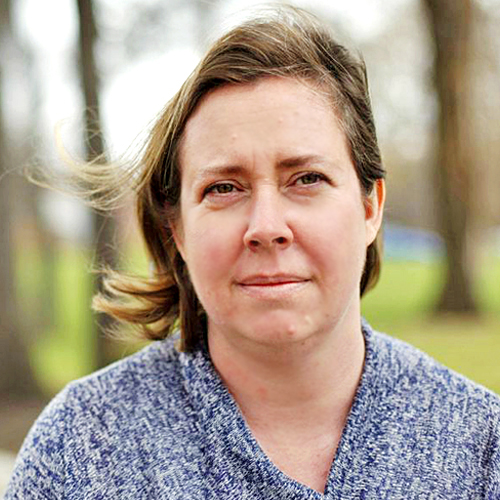
View Details / Enroll
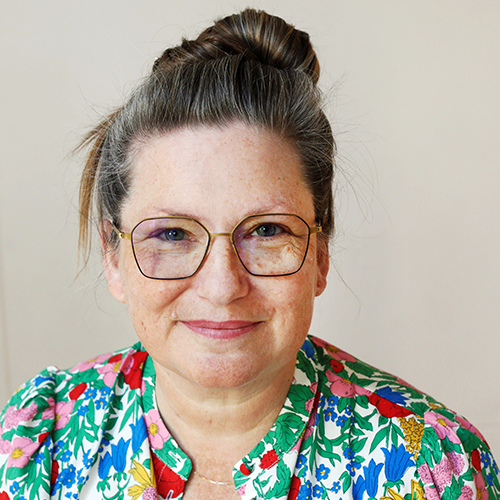

Zoe undertakes a diverse range of roles in the field of lactation and infant and young child feeding, including holding national and international leadership roles. Zoe works in the community public health service, in Brighton UK, delivering specialist services for family with complex and persistent feeding challenges as well as supporting the implementation of Baby Friendly Standards. Previously she run the in house breastfeeding peer support program for 15 years. Zoe teaches, colleagues, student public health nurses at Brighton University and presents infant feeding topics to a broad range of audiences. Zoe is Chair of Lactation Consultants of Great Britain and in July 2022 was appointed as to the International Lactation Associations Board. Zoe is also currently Charing an expert working group, on behalf of the emerging Breastfeeding Alliance writing and mapping breastfeeding competencies of the infant feeding support workforce to increase the understanding of the unique characteristics and shared skills and knowledge of those working to support breastfeeding families. Zoe enjoys working directly with families and babies to enable mothers and parents to meet their babies and young child’s needs and achieve their desired goals throughout their breastfeeding and infant feeding journey, and weaning experience.
Skilled support for weaning from the breast is often overlooked. Most policies and programs focus on initiation of breastfeeding, the continuation of lactation and support for overcoming challenges. In practice it can be harder for families to find information, support, and guidance to wean, whatever stage of their breastfeeding journey. Often it is perceived that support for breastfeeding is all about continuing. Like breastfeeding, weaning has socio-cultural, biological, immunological, physiological and anthropological considerations, and affects the physical and mental health of both mother and child. This talk will explore the many considerations, and complex interplay between multiple factors, that the infant feeding support workforce need to understand to meet the support needs of families. We will explore: the child’s developmental readiness, emotional, immunological, and nutritional needs, and what the milk and relationship mean to them. We will also look at the impact on the mother: what we know about how the pace of weaning may impact the lactating parent’s breast health and wellbeing and how to meet the evolving needs of their baby. And finally, we look at the dyad collectively. Supporting a positive ending to breastfeeding is an essential part of the skills and knowledge of lactation professionals.
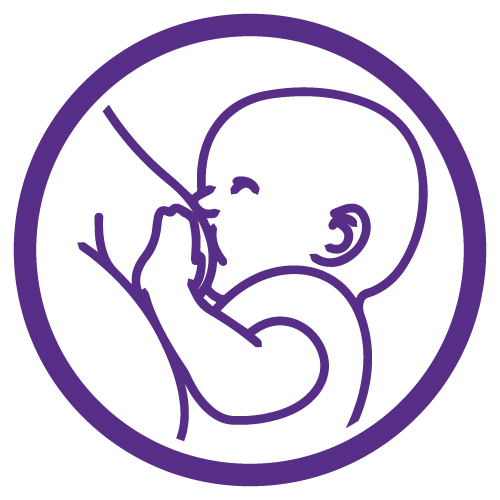
View Details / Enroll

Weaning: Supporting Families Stopping Lactation and/or Ending Their Breastfeeding/Chestfeeding Relationship

Joy MacTavish, MA, IBCLC, RLC is an International Board Certified Lactation Consultant and certified Holistic Sleep Coach focusing on the intersections of infant feeding, sleep, and family well-being. Through her business, Sound Beginnings, she provides compassionate and evidence-based support to families in the greater Seattle area, and virtually everywhere else. She entered the perinatal field in 2007 as birth and postpartum doula, and childbirth and parenting educator. Joy holds a Master of Arts in Cultural Studies, graduate certificate in Gender, Women and Sexuality Studies, and two Bachelors degrees from the University of Washington. She enjoys combining her academic background, analytical skills, and passion for social justice into her personal and professional endeavors. Joy serves as an Advisory Committee Member and guest speaker for the GOLD Lactation Academy. When not working or learning, she can be found homeschooling, building LEGO with her children, or dreaming up her next big adventure.
Topic: Full-Term Breastfeeding/Chestfeeding: Benefits, Considerations, and Ways to Offer Support - [View Abstract]
Topic: Mindful Breastfeeding: How Lactation Professionals Can Support Calm and Connection - [View Abstract]
Topic: Sending Reports: What’s in it for IBCLCs? - [View Abstract]
Topic: Supporting Clients Facing Fertility Treatment - [View Abstract]
Topic: The Intersection Between Lactation, Sleep, and Family Well-Being - [View Abstract]
Topic: Weaning: Supporting Families Stopping Lactation and/or Ending Their Breastfeeding/Chestfeeding Relationship - [View Abstract]
While lactation support spans the time from the prenatal period through weaning, there is less available information about the process of weaning. We know that there are a variety of reasons why families need or desire to stop lactation. We also know that there are emotions and logistics involved in ending a breastfeeding/chestfeeding relationship. Depending on the goals, timeline, and individual context of each dyad there are a variety of factors that need to be considered by the family. Unfortunately, these families often feel that the clinical information and emotional support available for weaning is lacking.
Evidence-based support presented in a compassionate manner can make a world of difference to the individual's decision-making process and overall weaning experience. For lactation supporters and professionals, being able to support families who are stopping lactation and/or ending their breastfeeding/chestfeeding relationship is a vital skill. This presentation will offer research-based information about the reasons for weaning, steps lactation supporters and professionals can take when working with families, and scripts for compassionate phrasing while offering this important information and support.

View Details / Enroll

View Details / Enroll

What a Letdown: Exploring the Physiology of the Milk Ejection Reflex

Briana Tillman received her undergraduate degree in International Relations from the United States Military Academy at West Point. She has been a La Leche League Leader for 9 years and is a board certified lactation consultant. After spending 10 years as a stay-at-home mom, she is currently in her third year of medical school at Rocky Vista University College of Osteopathic Medicine in Parker, Colorado. She loves spending time with her husband and three kids—as a family they like to travel, go camping, and play string instruments in “family ensemble.”
Nick is a 3rd year medical student at Rocky Vista University College of Osteopathic Medicine. He has a background in mechanical and systems engineering but found his calling in medicine after volunteering for Health4Haiti in 2011. He lives in Colorado with his wife and they enjoy hiking, camping and fishing in the great outdoors.
Topic: What a Letdown: Exploring the Physiology of the Milk Ejection Reflex - [View Abstract]
New mothers experience the milk ejection reflex, or “letdown,” in various ways. While some feel no physical symptoms, others experience a tingling sensation and some even have significant pain or sadness. Babies also have different experiences, from the overactive “drink from the firehose” to frustratingly long waiting at feeding time. This presentation explores the multitude of influences on letdown, from internal hormones and chemical signaling pathways to the research related to such external influences as diet, alcohol, stress, and the use of synthetic oxytocin.
Many moms believe that they either do not produce sufficient milk or need a quicker, more effective letdown. Suggestions to deal with these issues range from drinking beer to adding different nutritional supplements to the diet, from hypnosis to oxytocin nasal spray. We will explore the research and unravel the best practices and recommendations we can give to clients related to their concerns about the milk ejection reflex.

View Details / Enroll

View Details / Enroll



















